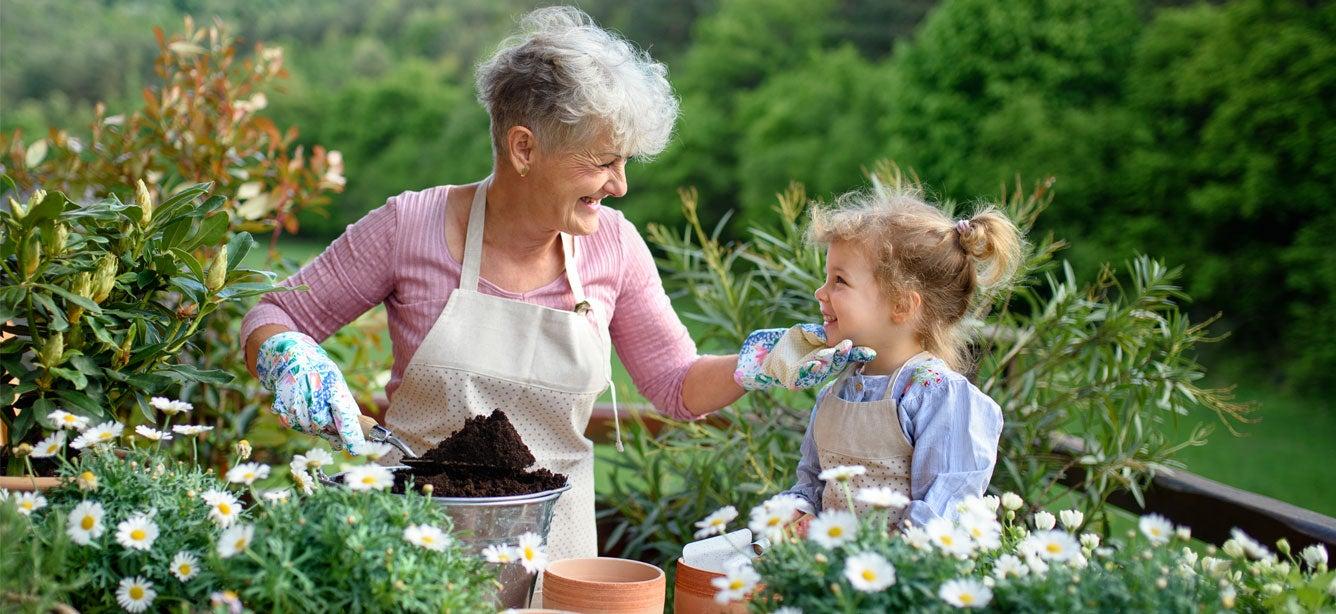What Is the Aging Mastery Program®?
4 min read

Aging Mastery is a comprehensive and fun approach to living that guides and empowers older adults to enrich their lives and celebrate the gift of longevity. The belief that modest lifestyle changes can produce big results and that people can be empowered to cultivate health and longevity are central to the Aging Mastery philosophy.
Aging Mastery aims to help millions of older adults take key steps to improve their well-being and strengthen their ties to communities.
What was the Aging Mastery Program® (AMP)?
The Aging Mastery Program (AMP) was a fun and engaging education and behavior change incentive program for aging well. AMP participants created their own playbook for aging well through actionable goals, sustainable behaviors, social engagement, and gratitude.
The AMP core curriculum covered 10 topics. The classroom experience emphasized peer-to-peer interaction. When they graduated from AMP, participants had set goals for positive actions in many aspects of their lives such as exercise, nutrition, finances, advance care planning, community engagement, and healthy relationships.
There were also 10 elective AMP classes that could be offered as a follow-on to the 10-class core program for AMP graduates. These classes addressed topics such as patient/physician communication, memory, home safety, nutrition vital signs, intergenerational connections, and sexual health.
AMP for Caregivers was a 12-part class educating caregivers about the impacts of caregiving and also provided them with tools to stay healthier and happier in the caregiving journey. The program consisted of the standard AMP core curriculum bookended with two classes specifically designed to address caregiver concerns.
The suite of products incorporated evidence-informed materials with inspiration and encouragement to give people the skills and tools they need to achieve measurable improvements in managing their health, remaining economically secure, and engaging actively in their communities. All materials and resources aligned with the goal of helping people enjoy their lives.
What were AMP's impacts on individuals?
Older adults in the program participants significantly increased their:
- Social connectedness
- Physical activity levels
- Healthy eating habits
- Use of advanced planning
- Participation in evidence-based programs
- Adoption of several other healthy behaviors
Program graduation and satisfaction data found that the program resonates with participants as both fun and educational.
- 80% of program participants graduated (took 7 of 10 classes)
- 97% found the program fun
- 98% would recommend the program to a friend
The class offering was actually profound for me. I am 70 years old and if I'm 'lucky' I may have 10 more 'good' years. The classes offered ways to make the years happier, healthier, and more worry free."
Does AMP have published research?
Yes. In May 2018, researchers at Temple University published a study of the Aging Mastery Program in the peer-reviewed journal Healthcare. The study showed specific improvements in physical activity and use of advance care planning. With this publication, AMP met the five criteria set by the U.S. Administration for Community Living to qualify as an evidence-based program under Title III-D of the Older Americans Act.
Learn more about AMP research.
In October 2019, researchers at the University of California Los Angeles published a second study in a peer-reviewed journal, Health Education and Behavior. Quasi-experimental analyses found that attending AMP was associated with improvements in mental health.


